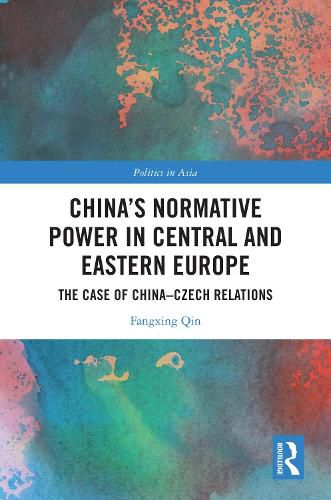Readings Newsletter
Become a Readings Member to make your shopping experience even easier.
Sign in or sign up for free!
You’re not far away from qualifying for FREE standard shipping within Australia
You’ve qualified for FREE standard shipping within Australia
The cart is loading…






Qin explores the ten-year development of relations between China and Central and Eastern Europe through the China-CEEC (China-Central and Eastern European Countries) cooperation (16/17+1), which began as a platform for annual high-level meetings between leaders of China and Central and Eastern Europe (CEE) countries, and to stimulate new dynamism and gain recognition through effective shared practice.
This book analyses the process of co-construction of shared practices between China and the Czech Republic through China-CEEC cooperation from 2012 to 2021 from the perspective of normative power. It proposes the concept of 'earning recognition' that provides a specific analytical path for dynamically measuring whether an actor could be seen as having normative power and brings new insights from the perspective of normative power to the debates on China's ideational influence in the CEE region. It provides a wealth of empirical evidence for reflecting on the failure of China's approach in the Czech Republic, adding an important piece of the puzzle to the study of China-CEE relations.
A valuable resource for scholars and practitioners in the field of international relations and China studies, especially those who specialise in China-CEE relations and those interested in China's impact on the world, the Central and Eastern European region, and the competition for influence among major powers.
$9.00 standard shipping within Australia
FREE standard shipping within Australia for orders over $100.00
Express & International shipping calculated at checkout
Qin explores the ten-year development of relations between China and Central and Eastern Europe through the China-CEEC (China-Central and Eastern European Countries) cooperation (16/17+1), which began as a platform for annual high-level meetings between leaders of China and Central and Eastern Europe (CEE) countries, and to stimulate new dynamism and gain recognition through effective shared practice.
This book analyses the process of co-construction of shared practices between China and the Czech Republic through China-CEEC cooperation from 2012 to 2021 from the perspective of normative power. It proposes the concept of 'earning recognition' that provides a specific analytical path for dynamically measuring whether an actor could be seen as having normative power and brings new insights from the perspective of normative power to the debates on China's ideational influence in the CEE region. It provides a wealth of empirical evidence for reflecting on the failure of China's approach in the Czech Republic, adding an important piece of the puzzle to the study of China-CEE relations.
A valuable resource for scholars and practitioners in the field of international relations and China studies, especially those who specialise in China-CEE relations and those interested in China's impact on the world, the Central and Eastern European region, and the competition for influence among major powers.